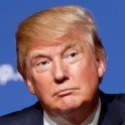
President Trump's trade war against China has so far cost the US 5G industry a total of $1.2 billion, a trade group for the US consumer electronics industry calculated. Since July 2018, Section 301 tariffs on products from China have cost the US a total of $12 billion, the group estimated.
To be clear, the Consumer Technology Association is a staunch opponent of Trump's trade war, and has argued vehemently against the effort almost from Day One. It's also the group behind the Consumer Electronics Show (CES) in Las Vegas each January.
"The president has overstepped his power on trade, and our nation's businesses and families are footing the bill -- it's time for Congress to step up for American businesses and consumers," said Gary Shapiro, in a statement. "With less than 40 legislative days left this year, we urge Congress to hold a hearing on the Reclaiming Congressional Trade Authority Act of 2019, which would reassert Congress' role in trade policy and protect Americans from this seemingly endless trade war."
The CTA (in partnership with The Trade Partnership, which analyzes the economic impact laws may have on trade), has been tabulating the cost of the trade war between the US and China for months. The US consumer technology industry paid $1.9 billion in tariffs in July; this included $143 million in tariffs on 5G-related products including smartphones, routers, gateways and servers, it reported today.
Looking beyond consumers
To be clear, 5G in the US is in a decidedly embryonic stage -- one estimate found US wireless network operators sold a total of just 29,000 5G smartphones through the second quarter. However, operators including AT&T and Verizon have been working to expand their 5G coverage areas for more than a year, buying and installing equipment including 5G basestations and antennas. Those electronics, designed by the likes of Ericsson and Nokia but likely imported from manufacturing facilities in China, undoubtedly fall under the purview of Trump's 25% tariffs. Further, Trump has promised to expand the trade war by applying a 10% tariff to all cell phones, including those with 5G, starting in December.
Indeed, the situation is pushing a wide array of manufacturers to move operations outside of China to avoid the tariffs. For example, smartphone maker Sonim Technologies said it started shipping its first phones manufactured outside of China just last week. Meantime, Nokia, Ericsson, Apple and others have been working to shift their manufacturing efforts to other locations, including into the US.
It's unclear how the situation will develop. Trump has made trade a centerpiece of his administration, arguing China has engaged in a wide range of unfair business practices both domestically and globally. However, Republicans are reportedly beginning to worry how the trade war will impact their chances in the 2020 elections.
— Mike Dano, Editorial Director, 5G & Mobile Strategies, Light Reading | @mikeddano
Read more about:
AsiaAbout the Author(s)
You May Also Like




_International_Software_Products.jpeg?width=300&auto=webp&quality=80&disable=upscale)







